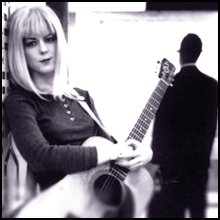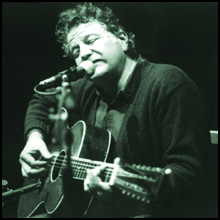![[Sidebar]](/standard/image/sidebar.gif)
![[Music Reviews]](/standard/image/headers/music_reviews_header.gif)
| clubs by night | club directory | bands in town | concerts | hot links | reviews & features |
This Saturday's Philharmonic program, though boringly titled "The British Are Coming!," will nevertheless give audiences a chance to hear thrilling works by men whom the British absolutely adore -- composers who among them created most of the high points of the English classical canon. London calling
The Philharmonic goes Anglo
by Michael Caito
For instance: the son of a humble Catholic church organist who earned a piano-tuning trade outside Worcester, Edward Elgar soaked up his dad's skills without much formalized training. Self-taught in composition after minimal piano and violin in-struction, he eventually married a piano pupil of his -- the daughter of a retired general -- and in the final decade of the 1800s produced many of his most important works, including his finest choral moment in The Dream of Gerontius, which premiered in 1900.
His rise into the upper-middle class of Edwardian England had lent him, in the public's eye, an air of eccentric aristocracy, and while historians often credit Elgar as a vital predecessor to the revival of the "English renaissance" which started in earnest just after World War I, his work is more inspired by Brahms and Wagner than were the later efforts of Ralph Vaughan Williams, as far as incorporating the histories and filigrees of singularly English folk music. Elgar's Gerontius, for example, has been widely acknowledged as reflecting an immersion in Wagner's Parsifal. While Mahler was simultaneously pushing the trad envelope elsewhere in Europe, Elgar did as well, through a reassessment of established ideas of symphonic structure, and frequently through the employment of Romanticism's vibrant harmonies. Described as cynical by many, Elgar must have enjoyed a hearty laugh at the expense of his critics for his "Enigma" Variations (whose actual title is Variations on an Original Theme). With cryptic and elliptical markings on the score denoting more than a dozen of his acquaintances, a mysterious "larger theme"and an unnamed companion piece which "goes with" these Variations and which he refused to identify, the solution to Elgar's "Enigma" riddle proved an elusive grail for musicologists. Musical gumshoes, over time, went nuts trying to figure out which piece Elgar intended to be the companion.
Ralph Vaughan Williams was anything but a child prodigy in that many considered his instruction under Ravel as the first serious step he had taken in composition. Then in his mid-30s, it took him a few more years to come up with his most popular work Fantasia on a Theme by Thomas Tallis, though he ended up spending over half his life working on the four-act opera The Pilgrim's Progress based on Bunyan's allegory. Vaughan Williams called the former a "Jacobean fantasy," and of his (half) life's work, he's been quoted as saying that "it's not like the operas they are used to, but it's the sort of opera Iwanted to write, and there it is." Can't really sound more British than that.
Mary Lou Lord
Mary Lou Lord/Junkster/Bill Keough: Live at the Century LoungeI'd told Little General Keough two things a long time ago: 1) I'm not writing jack until you bring the real juice and 2) absolutely anything Idid write would reflect poorly on the singer/guitarist given the fact that he's a Phoenix employee. (Should've added number three: if the BeLoJo puts a picture of an in-house band in their Sunday paper, then a guy who has brought Fugazi here numerous times warrants at least a paragraph).
That said, he's better now, giving his unjustly-victimized-soul-with-a-heart-as-big-as-Chepachet bitterness a scythe's edge like his idols Ani, Mould, Polly Harvey and Rollins. Mary Lou Lord, who literally cut her performance teeth on Mass(achusetts) transit busking on the "T," is still very much the subterranean observer spurred on by the poetry of Joni Mitchell and Shawn Colvin. Add a twist of indie, including a gut-busting tooling of critics in one song about being panned by CMJ, and you have a busker who has graduated to street level without co-opting believability. Delivering covers of Colvin and Richard Thompson, a harried between-song patter ("chitchat doesn't work so well on the T, for obvious reasons," she goofed) and some nifty phrase-bending which can turn every cliché inside-out, she's one of few neo-folkies who can invoke a ruined Parisian palace (the Tuileries) without seeming like an arch Gen-X know-it-all.
Here's hoping her imminent Epic release doesn't sandblast the grittiness of the subway, the sweaty anxiety under unforgiving fluorescence, for that would be a shame. Said debut features some heavyweights (Nick Saloman from Bevis Frond, Byrds' 12-slinger McGuinn), and such creative forces make take her, chart-wise, from busking to basking. But something says it'll be a long while before hard lessons learned about spare change earned will fade.
Between Lord and BK, the Irish quintet Junkster visited the Call, and pre-recorded percussion and synth tracks were tastefully applied for a change. But, were they pre-recorded at all or just effects-laden drum/guitar work? If it sounds great then who cares . . . one wall's been broken down already. Another falling wall: they are a vocals/guitar led band with a dance single out, and if that seems contradictory then you'd better hunt down their RCA debut. Deirdre O'Neill has an unforgettable voice, their pop has muscle, and their melding of techno with guitar-rock is custom-built for the big halls. It's hypnotizing songcraft at work, and it's no junk.
Paul Geremia
LIVING THE BLUES. On record Paul Geremia is not the kind of performer with armloads of axes to grind. What does irritate him is "too many drinking establishments where the opportunity for discussion has been replaced by a plague of televisions, video games and noise-making machines."So there are few audiences held in thrall by the power of the native Johnstonian's authentic interpretations of blues as much as those at Stone Soup during his annual visit. He'll stretch on piano and harmonica, but it's the stringed instrument which remains his time machine of choice. Or perhaps you could call it his favorite chalkboard for recounting blues' precise origins, as he provides almost every song with a musical geneology and differing interpretations through the early- and mid-1900s. Having travelled extensively throughout the south and the eastern seaboard, he had the opportunity to meet legends in their own homes, and Geremia gleaned vital info through first-hand recollections of lyric, scalar and situational differences in the songs' embellishments over the years. This informed view lends itself perfectly to his own style, which is finally being recognized in wider circles as astonishing. I still count 12-string and cello as the most beautiful instruments, and have never heard onstage anyone comparable to Geremia's expressiveness on the 12 with the possible exception of jazzman Al DiMeola (who dabbles occasionally), rocker Brian May (who utilized a 10-pence coin as plectrum) and folk heavyweight Leo Kottke. Saturday night, Soup's on.
| home page | what's new | search | about the phoenix | feedback |
Copyright © 1997 The Phoenix Media/Communications Group. All rights reserved.

